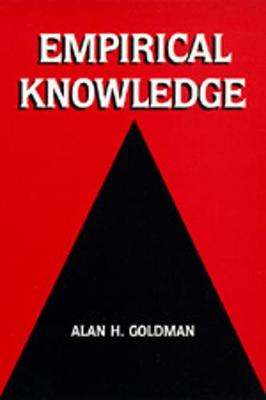This remarkably clear and comprehensive account of empirical knowledge will be valuable to all students of epistemology and philosophy. The author begins from an explanationist analysis of knowing a belief counts as knowledge if, and only if, its truth enters into the best explanation for its being held. Defending common sense and scientific realism within the explanationist framework, Alan Goldman provides a new foundational approach to justification. The view that emerges is broadly empiricist, counteracting the recently dominant trend that rejects that framework entirely.
Topics treated include the Gettier problem, the nature of explanation and inductive inference, the justification of foundations for knowledge in terms of inference to the best explanation, the possibility of realist interpretations of contemporary science, reference (as it bears on recent antirealist arguments), and the relations between empirical psychology and epistemology. Professor Goldman defends the need for a foundational theory of justification and presents a version that refutes standard criticisms of that doctrine. His defense of realism takes into account contemporary advances in semantics and philosophy of science. It attempts to clarify the kinds of skeptical argument the philosopher must take seriously, without succumbing to them. While recent epistemology has tended to dismiss the traditional foundational approach, it has not provided a suitable alternative. Goldman breaks new ground by adapting that approach within his explanationist, inductive theory.
- ISBN10 0520076486
- ISBN13 9780520076488
- Publish Date 22 October 1991 (first published 3 August 1988)
- Publish Status Out of Print
- Out of Print 2 April 2001
- Publish Country US
- Imprint University of California Press
- Format Paperback (US Trade)
- Pages 422
- Language English
